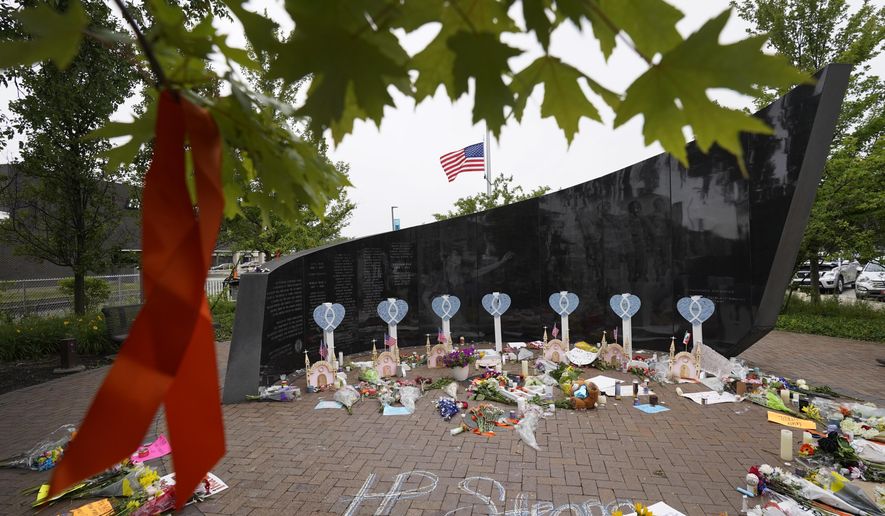The House passed a bill that would establish an Amber Alert-style communications network to warn about active-shooter incidents, giving Congress another chance to confront mass shootings before midterm electioneering shifts into high gear.
The Active Shooter Alert Act passed the House in a 260-169 vote Wednesday, with 43 Republicans joining all but one member of the Democratic majority in supporting the legislation.
The backing by House Republicans, though not GOP leadership, gives the bill a glimmer of hope that it could survive the 50-50 Senate, in which 60 votes are needed to pass most bills.
“It’s just about the public-safety notification aspect and to help people be conscious of that,” said Rep. French Hill, an Arkansas Republican who voted for it.
House Republican leaders and many in their caucus objected to the new alert system because it solely focuses on attacks with firearms rather than all violent attacks.
Critics also said it was unnecessary and redundant due to existing state and local alert systems, and that the bill broadly defined “active shooter” and “populated area” to allow for the alerts to be sent in virtually any scenario involving the discharge of a firearm.
“It would be a greater use of our time to create a congressional stupidity alert system,” said Rep. Chip Roy, Texas Republican.
Rep. David Cicilline, the Rhode Island Democrat who authored the bill, said Congress must do more to keep communities safe from mass shootings.
“Active shooter events have become ubiquitous – so frequent that some of these horrific events barely make headlines. This is not normal, and we cannot let it be normalized. We cannot become numb to these events, and we cannot settle for the status quo,” Mr. Cicilline said.
Rep. Ron Kind, Wisconsin Democrat, was the sole member of his party to vote against creating the alert system.
“I don’t think it was very well thought out,” Mr. Kind, who is retiring this year, told The Washington Times. “Statistically, the first ones to show up at the scene are law enforcement and by the time they arrive, the shooter has left or killed themselves, so why do we want to strike panic in the entire community when this gets resolved really quick?”
The effort to create an active shooter alert comes on the heels of President Biden late last month signing the most significant new gun-control laws in decades.
That bill included an expansion of background checks to include juvenile criminal records, added spending on mental health, and offered incentives for states to adopt “red flag” laws that let authorities confiscate guns from people whom a judge deems dangerous.
The new firearm laws were spurred by a rash of mass shootings, including a racially-motivated attack on a grocery store in Buffalo that killed 10 Black people and a massacre at an elementary school in Uvalde, Texas, that killed 19 children and two teachers.
Within days of Mr. Biden signing the gun bill, a man opened fire on an Independence Day parade in a Chicago suburb, killing seven people and wounding at least 46 others.
It’s an open question whether Senate Republicans who made passage of the gun-control bill possible have an appetite for another such bill.
Sen. John Cornyn of Texas, who spearheaded the negotiations for the GOP on the last gun control bill, threw cold water on the active shooter alert.
“The administration had a chance to try to negotiate all this stuff, and now all I hear is the stuff that didn’t get that they want,” he said. “It’s kind of a strange way to be talking about your own bill, but if somebody has got an idea, I’m always willing to listen, but I don’t think we’re going to go back to the gun bill.”
• Kerry Picket can be reached at kpicket@washingtontimes.com.
• Mica Soellner can be reached at msoellner@washingtontimes.com.




Please read our comment policy before commenting.